The Eastern Arc Thematic Champions
Our Thematic Champions work in a diverse range of disciplines across the Eastern Arc.
We will be working with them to identify areas of common strength across the three universities, and these will act as a focus for research and the funding that underlies it, as well as the essential engagement with the wider community in our region and beyond.
To understand the rationale for each theme, click on our Strategy 2020-25.
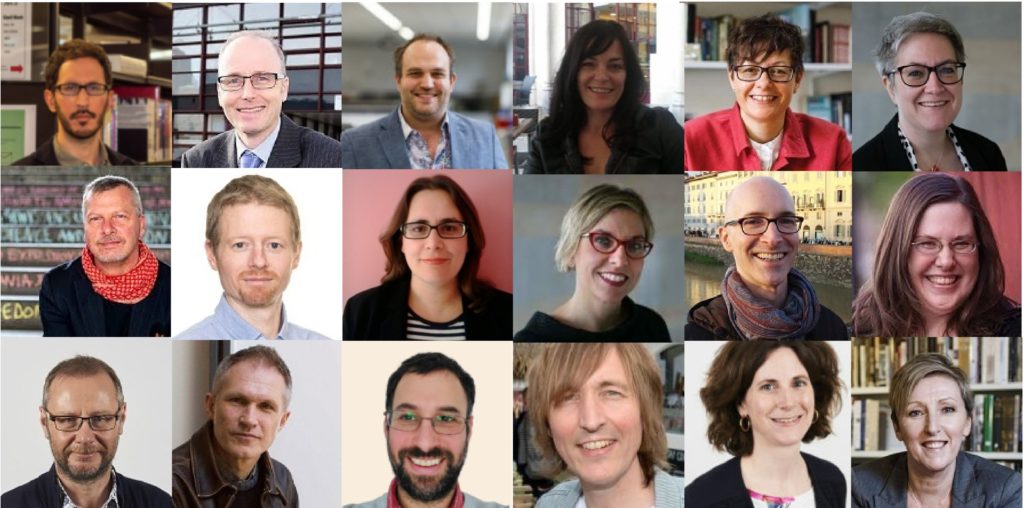
-
Although significant advances have been made globally in improving health, increasing life expectancy and tackling communicable diseases, the UN has recognised that progress has slowed or stalled. We can play a part in reversing this. Find out more about our work in this area here.
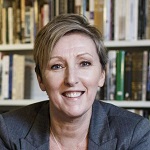
Dr Julie Anderson (Kent)
Julie is a Reader in the School of History, and Faculty Director of Medical Humanities. She moved from Australia to undertake a PhD at the University of Leicester. She held a fellowship at Manchester before coming to Kent. Her interests cover the history of medicine in the late nineteenth and early twentieth century. She is particularly interested in the cultural and social history of physical disabilities and blindness.
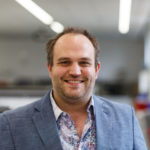
Dr Rob Barker (Kent)
Rob is a BioPhysicist/Engineer & Physical Chemist at Kent. He is the Innovation Lead for Division of Natural Sciences, and has interdisciplinary interest that crosses fields as diverse as engineering, physics, chemistry, forensics, biology, medicine and computing.

Professor Kevin Daniels (UEA)
Kevin Daniels is Professor of Organisational Behaviour in the Norwich Business School, and has previously worked at Loughborough University. He led the Work, Learning and Wellbeing evidence programme for the ESRC-funded What Works Wellbeing Centre, and a project on workplace wellbeing and productivity, also funded by the ESRC. He has a particular interest in developing policies, guidance and practices to promote wellbeing and safety in the workplace.

Dr Laurie James-Hawkins (Essex)
Laurie is a health and gender sociologist with an interest in social psychology, social norms, and reproductive health. She joined the University Essex in 2017 having completed her PhD in Sociology at the University of Colorado Boulder, and was a post-doctoral fellow in Gender, Family, and Global Health in the Rollins School of Public Health at Emory University.
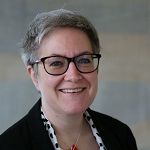
Professor Tracey Loughran (Essex)
Tracey is a historian of twentieth-century Britain, with particular interests in the interaction of ideas and experiences of body, mind and self. She joined Essex from Cardiff, and currently holds a Wellcome Trust Investigator Award in Humanities and Social Sciences for the project Body, Self and Family: Womens Psychological, Emotional and Bodily Health in Britain, c. 1960-1990.
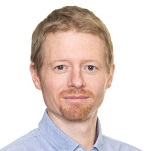
Dr David Watson (UEA)
David is a Lecturer in organisational behaviour. He is an experienced qualitative researcher with training in both quantitative and qualitative methods, and has worked on research projects in a number of settings, including social movements, community organisations and with vulnerable groups in deprived areas. He came to UEA having done his masters and PhD at Essex.
-
According to the World Justice Project, an estimated five billion people have unmet justice needs globally. This has been exacerbated by the rise of extremism, political instability and the climate crisis. Issues of migration, gender inequality, corruption and free speech mitigate against sustainable and fair development. Challenging these issues is at the heart of what we are. Find out more about what we do here.

Dr Andrew Fagan (Essex)
Andrew is Director of the Human Rights Centre at Essex. He has been at the University since 1998, and has taught in the Department of Philosophy, the School of Law as well as the HRC. His research focuses upon the normative, political and cultural challenges to human rights, and is particularly interested in the contributions that radical philosophies and politics can make to defending human rights against multiple challenges.
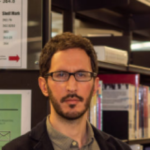
Dr Giuseppe Maglione (Kent)
Giuseppe is a Lecturer in Criminology. His main research interests are around penal politics, restorative justice, conflict mediation, penal abolitionism and anarchism. Before becoming a full-time academic, he worked as a legal advisor in prisons, victim-offender mediator, community mediator and trainer in conflict management/mediation for private and public organizations (Police, Social workers, Healthcare professionals etc.) in Italy, Norway and Scotland.

Dr Wendy McMahon (UEA)
Wendy is a Senior Lecturer in American Studies. She joined UEA in 2010 after completing her PhD at the University of Essex. Her research interests centre around the literatures of the American hemisphere and include African American literatures and human rights, conflict, security, diaspora and exile writing. She has had funding from the Global Challenges Research Fund through AHRC and NERC.
-
The UN has indicated that, after decades of steady decline, world hunger has slowly been on the rise since 2015. An estimated 821 million people in the world suffered from hunger in 2018. At the same time, obesity continues to increase in all regions of the world. However, food needs to be seen in the wider framework of how we use natural resources, how we manage biodiversity and how we ensure sustainability. Our universities work with partners globally to understand and find solutions to the conflicts we face. Find out more here.

Dr Christa Brunnschweiller (UEA)
Dr Christa Brunnschweiler is an Associate Professor of Economics. Her research interests include economic growth and development, particularly in resource economics and conflict studies. She has recently been studying how we can change attitudes and behaviour for better natural resource management using behavioural economics.
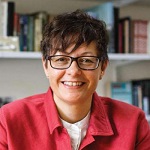
Professor Karen Jones (Kent)
Karen is Professor of Environmental and Cultural History She worked as a teaching fellow at the University of Essex, before arriving at Kent in 2004. She is a 19th-century specialist with particular interests in environmental and cultural history. Her current research interests include hunting, taxidermy and the interior ecologies of animal display (with Quex Park) and city parks: histories of health, space, and wellbeing in the urban metabolic landscape (funded by the Wellcome Trust).

Dr Avidan Kent (UEA)
Dr Avidan Kent is an Associate Professor in International Law. Avidan is the Founder and Convenor of UEA’s International Law Research Group, and is interested in areas including international environment law, public participation and climate-induced migration.
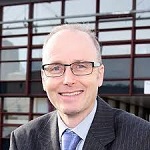
Professor Graham Underwood (Essex)
Graham is a Professor in the School of Life Sciences. He is a marine and freshwater biologist, particularly interested in the interactions between microbes (algae – mainly diatoms, and bacteria), dissolved organic matter (DOC, DOM), nutrient cycling, biogeochemistry, and responses to environmental pressures (climate change, pollution). These ‘bottom up’ processes feed through into ecosystem functioning, and ecosystem services.
-
Placing culture at the heart of our endeavour towards a fairer, more sustainable future is the only way to ensure human-centred, inclusive and equitable development. We must understand how we communicate and how we engage. UNESCO summarised this simply: ‘development is inseparable from culture.’ For us, culture and creativity are both academic and performance-based, both theoretical and applied. They are engaged locally, nationally and internationally. Find out more about our work here.

Dr Paola Di Giuseppantonio Di Franco (Essex)
Paola is a lecturer in Heritage and Digital Humanities. Her research combines material culture, heritage, and cognitive science to explore how new technologies impact heritage making processes and the interpretation processes of the past. She was a Marie Skłodowska Curie Fellow at Cambridge before coming to Essex as one of the original EARC Fellows.

Dr John Gordon (UEA)
John is a Reader in English Education, a UEA University Teaching Fellow and Senior Fellow of the Higher Education Academy. He is the Academic Chair of UEA’s new integrated interdisciplinary research theme, CreativeUEA. This combines the University’s long history of high quality research in the creative arts (in particular in literature, arts, media, and drama) with new interdisciplinary research activities that will bring together colleagues from across all four faculties, as well as with the institutes and centres within Norwich Research Park.
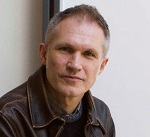
Professor Murray Smith (Kent)
Murray is a Professor of Film Studies. He was Director of Research, Faculty of Humanities (2008), and Director of the Aesthetics Research Centre (2007), Head of Film Studies 1999-2003, 2007-8; Director of Research for Drama, Film and Visual Arts, 2001-4; and a Leverhulme Research Fellow, 2005-6. His research interests are film theory broadly, but especially the ‘philosophy of film’, film theory informed by analytic philosophy, and classical film theory.

Dr Michael Tymkiw (Essex)
Michael was the lead for Digital Humanities at Essex in the first phase of Eastern Arc. He received a BA from Yale University and a PhD in Art History from the University of Chicago, where he also completed an MBA. Before coming to Essex, he was a Postdoctoral Fellow at the Kunsthistorisches Institut in Florenz–Max Planck Institut. Michael specialises in modern and contemporary visual culture, with a particular interest in issues of spectatorship.

Professor Melanie Williams (UEA)
Melanie is a film historian specialising in the study of British cinema with a particular emphasis on issues of gender. She came to UEA’s School of Film and Television Studies in 2009, where was Head of Department from 2014-2016. She was Athena Swan Gender Equality Lead, and is currently Research Director for UEA’s Interdisciplinary Insititute for the Humanities.
